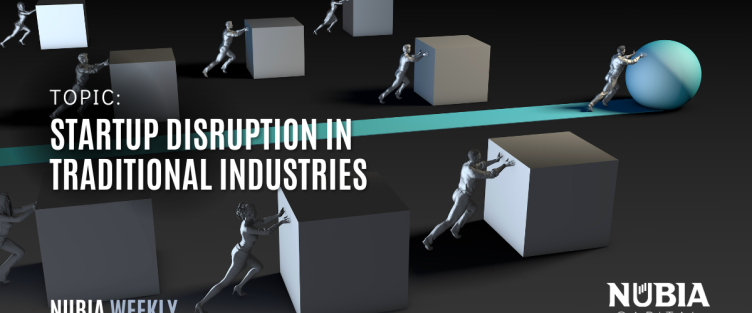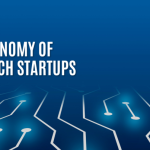Introduction
Innovation has often been defined as the concept of new. A new idea, a new method, a new process. Disruptive innovation is then a new idea, process and method that shakes up an industry in a way that makes it simpler and more accessible – to use for instance what Netflix did with Blockbuster. Consequently, disruptive startups are those companies that house these innovations.
These definitions and conversations are interesting but the success of innovation, disruptive innovation or/and a disruptive startup is measured by its impact on that traditional industry. In fact, it may be argued that startups should not even be set up in the first place if their main purpose is not to solve an existing problem or make situations easier and disrupt a particular way of doing things.
The purpose of this essay is to redefine the boundaries of what is possible and highlight factors responsible for the growth of startup culture and their entry into traditional markets/industries.
What Is Possible
Anything is possible, it all depends on how you see the world. It starts from the immediate environment and surroundings, questioning every method, process and creation. Technology as it is, is a form of advancement and light to the world, serving as a tool to improve people and innovative solutions are the key to unlocking the possibilities of technology. What is possible depends on the questions we ask on why the status quo exists in the first place. What is possible depends on the pains we face in our journey throughout the world. As we live, eat, sleep, work, and play, what is possible changes. Technology is the source of that change. Technology is the means to an end, the end being a ground of possibilities.
What is possible depends largely on two major factors.
- A Customer-Centric Approach:
Investopedia describes a customer-centric approach as a strategy and a culture of doing business that focuses on creating the best experience for the customer, and by doing so builds brand loyalty. Simply having a customer-centric approach for the sake of it is what we often see. We fail to see businesses that are one step ahead of their customers, who understand the customers so well, who create experiences for them. The best way to stay ahead of the customers is by technology solutions and skills to understand human behaviour. For instance, with the use of Big Data Analytics, we can understand customer insights to drive business decisions and create tailored solutions. A preferred way to stay ahead of the customers is to anticipate their customer needs, constantly identifying emerging customer trends and anticipating their future needs. It is important to stay updated on industry trends and advancements that could impact customer expectations.
Above all, we must measure and track customer expectations by establishing key performance indicators (KPIs) and customer satisfaction surveys. There should be a culture of feedback and collaboration between departments to achieve one thing: utmost customer satisfaction. Indeed, employees that go above and beyond to deliver eccentric customer experiences should be rewarded.
2. Innovative business models:
A business model is the value an organisation offers to its customers. There are business models that have been established that shaped the way citizens interact with industries. The bulk of what is possible depends on the ability to adjust these business models to achieve the aim of faster, better and easier. Besides, gone are the days when the world needs an idea that will move everyone off their feet. Certainly, the best ideas are those that take a particular way of doing things and make it better through innovation.
Innovative business models have become a key driver of success and disruption in various industries. These models challenge traditional approaches and introduce new ways of creating, delivering, and capturing value.
But what needs to be innovated?
What Industries need to be disrupted?
Healthcare: Khosla Vinod, the author of 20% Doctored, has argued that in a few years, 80% of doctors will be replaced by machines. His position is that healthcare will fuse with artificial intelligence (AI) to displace 80% of doctors and for a long time, we will still need to leverage 10 – 20% of doctors. Khosla said that machines, driven by large data sets and computations power, not only would be cheaper, more accurate and objective, but better than the average doctor. To get there, the level of machine expertise would need to be in the 80th percentile of doctors’ expertise, he said.
Leslie A. Saxon, MD, the Chief of Cardiovascular Medicine at the Keck School of Medicine, University of Southern California, gave very profound insights into the rigidity of healthcare and how the structure has not really changed even with the advent of technology. She imagines the world in a few years, where owning and sharing health data will be just like how we can share our life on social networks. Why? There is a digital health ecosystem that holds the power of individualised care through big data and global health connections. In her article, she emphasised the need for change by saying that “We should get continuous data, review exceptional events daily, and can alert patients when they need help. We can catch disease patterns as they are happening. We have the potential to act within minutes or hours versus months in the traditional follow-up clinic. Patients can learn to partner in their care. They can be meaningfully engaged and empowered. We live in the so-called Information Age.”
According to her, she was in San Francisco during the 1990s dotcom boom, and she watched as Silicon Valley introduced us to the Information Age. “It has changed my world, but it hasn’t changed how I practise medicine,” she said.
Healthcare is a traditional industry that needs to be disrupted. With a history dating back centuries, it has been improved in many ways but hardly disrupted especially with the advent of technology in the 21st century.
Why do we need disruption in healthcare? To make it better, easier, and faster.
Legal industry: The legal industry has begun its journey to disruption. With the advent of OpenAI and AI generally, there are new demands and questions. For instance, there is a demand for new ways of accessing legal representation. In the past, lawyers were hired based on their previous relationships with clients. Now it’s about skill sets. It’s more about what you can deliver and the expertise. In fact, the delivery of legal services has shifted from hourly billing to pockets of legal services. Although it is a fact that more people understand the need for lawyers especially in a tech age/startup culture, following this knowledge is a new level of demand for not the lawyers in themselves, but more of their services in pockets/sachets. This means lawyers will now be picked based on the needs of a specific project. Specialisation is relevant but generalisation and specialisation are more important as the world becomes more intertwined. The clients will dictate how they want legal services. This process is called unbundling of legal services.
AI will not replace lawyers but lawyers who use AI will replace lawyers who don’t. Rudoy, a former Am Law 50 firm leader, said that knowledge of tech isolated from legal services and legal services isolated from tech is now a thing of the past. Without significant investment in tech, the less ‘digitally savvy’ law firms will be left behind.
The disruption in the legal industry is that of skills and practice. This is no surprise because the business of law is the practice of that service.
Agriculture: Agriculture has had its own fair share of disruption and change over time in history. In 1870 in the United States, agricultural workers comprised half the labour force but by the end of the century, their number had fallen to less than 30%. Even till the present day, agriculture is a driver of the economy. According to the world bank survey, Agriculture is crucial to economic growth: accounting for 4% of global gross domestic product (GDP) and in some least-developed countries, it can account for more than 25% of GDP. In the Disruptive Agricultural Technology (DAT) Challenge and Conference held in Nairobi and hosted by the World Bank, four questions were asked in relation to four major challenges faced in the agricultural sector in Africa.
The first challenge was in Advisory and Information of Agricultural Productivity. Questions were asked and disruption was sought regarding how startups, innovation organisations and businesses could assist in guaranteeing that farmers in Kenya can acquire up-to-date information, training, techniques, and tailored mechanisation to suit their needs.?
Another challenge was in market linkages where there is slow and unreliable access to the market They then sought innovators, organisations, and businesses that have revolutionised the limited access to both forward and backward market connections through disruptive digital solutions. The last two challenges are regarding farmer financial inclusion where farmers have low access to credit and insurance and low agricultural intelligence where technologies like data analytics, and other emerging technologies could be used for market forecasts, farmers registries and every other thing that can improve rapid development in the sector.
This conference was held in 2019 yet there is little change in terms of visible growth but it is good to acknowledge all startups that are trying to and have tried to make a change in Africa through one or more of the challenges listed above.
The Education sector needs disruption so do transportation, real estate, and more industries.
This is the power of innovation to create something out of nothing or improve things that have become stagnant and irrelevant.
What other industries do you think require disruption?
Conclusion
It is our job as innovative minds in various sectors to adopt technology as a means to an end, which is a world that is easier, better and cheaper. We should not just see technology as a new wave of power to upskill ourselves and get better jobs in this new tech sector but as a tool to remove what was once traditional, improve it, make it better and even build successful businesses along the way.

We are Nubia Capital.
We focus on entrepreneurs that have the potential to disrupt traditional industries, address critical challenges in Africa and yield financial returns.
Our team at Nubia Capital possess a wealth of experience in private market investing, M&A, policy, regulatory compliance and business management.
For Partnerships: Info@nubiacapital.org




